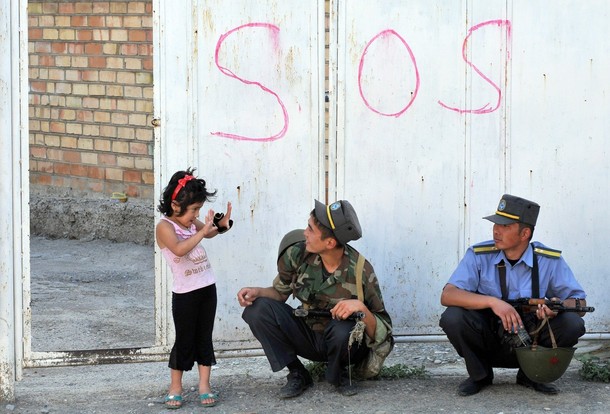
From Ross Wilson and Damon Wilson,the Atlantic Council: [T]he Obama administration and its allies underestimate what is at stake in this far-away country of over five million pinched between Kazakhstan, Tajikistan, Uzbekistan and China. The failure of Kyrgyzstan – which cannot be excluded given recent events – would aggravate our problems in Afghanistan. It could lead to the same kind of vacuum in Kyrgyzstan that terrorists exploited in Afghanistan a decade ago. It would expose its neighbors to similar vulnerabilities.
However, U.S. influence and ability to help Kyrgyzstan is now compromised by a local view that Washington “betrayed” the country by failing to confront the excesses of the Bakiyev regime and aided its kleptocracy through the arrangements to contract fuel for U.S. military aircraft using the Manas transit center. Having made support for Afghanistan operations the main U.S. mission in Kyrgyzstan, the United States has inadvertently compromised its democracy agenda there – and has compromised its Afghan efforts in the process. The U.S. priority should be to support the Otunbayeva government that, despite its weaknesses, is now the country’s best hope, and to revise the U.S.-Kyrgyzstan relationship in ways that reflect our real interests there.
Key steps include:
• Backing a robust Organization for Security and Cooperation in Europe (OSCE) mission that includes
police, border and conflict resolution components far more serious than those currently being contemplated;
• Seeking to provide a mentoring capability, perhaps one or more senior U.S., European or other officials familiar with Central Asia, who can advise the interim government and give greater coherence to its engagement with the OSCE and key foreign actors;
• Encouraging the World Bank and International Monetary Fund (IMF) to step forward with policy guidance and possibly funding to help stabilize the country’s finances, bolster economic management and improve transparency; and
• Focusing U.S. relief and other assistance on rebuilding the south.
Ambassador Ross Wilson is Director of the Patriciu Eurasia Center at the Atlantic Council and perviously served as Ambassador to Turkey and Azerbaijan. Damon Wilson is Vice President and Director of the International Security Program at the Atlantic Council. He formerly served as Senior Director for European Affairs at the NationalSecurity Council, during which he was responsible for OSCE issues. (photo: Getty)
Image: getty%207%201%2010%20Kyrgyz%20police%20officers.jpg
